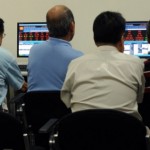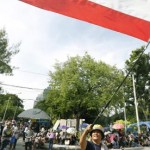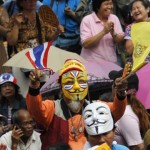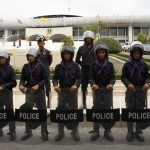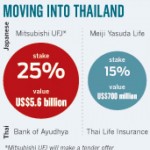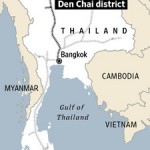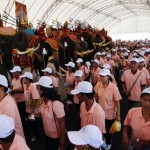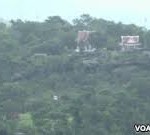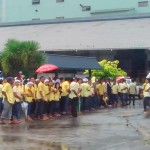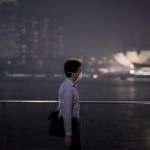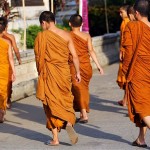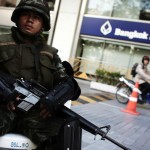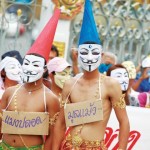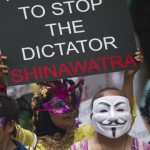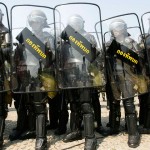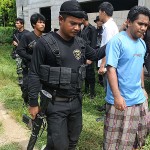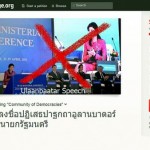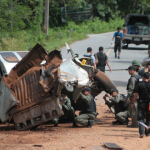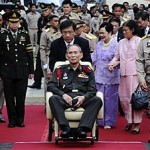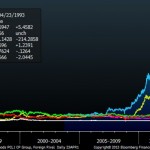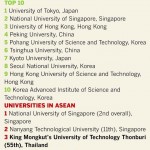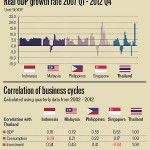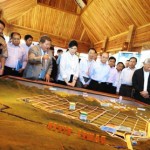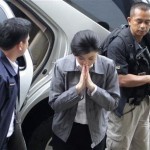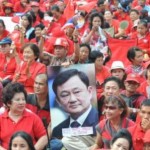Thai Amnesty Push Risks Protests as Stocks Slide

Thai Prime Minister Yingluck Shinawatra risks the country’s biggest protests this year with a legislative push that includes an amnesty for jailed supporters and 2 trillion baht ($64 billion) of railway investments.
Parliament will from today debate those laws and changes to the constitution imposed after a 2006 coup that ousted her brother, Thaksin Shinawatra. Protests from rival groups may bring large crowds on the streets, National Security Council Secretary-General Paradorn Pattanatabut warned yesterday.
The SET Index, Asia’s worst performing stock benchmark in the past three months, has slumped on concern over a renewal of unrest that has killed more than 100 people since the coup. Royalist judges, soldiers and middle-class urbanites have moved to thwart allies of Thaksin, who has seen parties linked to him win the past five elections on support from rural areas.
“Political stability is very important for the continuity of economic recovery going forward,” Usara Wilaipich, a Bangkok-based economist at Standard Chartered Plc, said by phone. “The Thai economy will depend mainly on government spending and public investment because external demand remains weak while private consumption and investment appear to have a slowdown.”
Thailand’s baht in July dropped for a fourth straight month, the longest losing streak since 2008, on concern an economic slowdown in China will hurt exports. Southeast Asia’s second-biggest economy probably slowed in the second quarter from the preceding period on weak overseas sales and cooling local demand, Ekniti Nitithanprapas, a finance ministry official, said July 29.
Stocks Fall
The SET Index has fallen 12 percent over the past three months, led by declines in the property, finance and automotive sectors. Over the past year, the benchmark has gained 18 percent. The SET Index (SET) rose 0.7 percent as of the midday break in Bangkok, poised for its first gain in four days.
Finance Minister Kittiratt Na-Ranong said this week that the seven-year infrastructure spending plan is needed to offset weakness in exports and consumption. He expressed confidence the bills complied with the constitution, rebuffing criticism from opponents who said the off-budget spending violated the charter.
The government will invoke the Internal Security Act, which gives authorities greater power to control crowds and search for weapons, from today until Aug. 10 to handle protests from several different groups, Paradorn told reporters. It was last used in Bangkok in November, when Yingluck opponents calling for a coup failed to attract large crowds.
‘Create Unrest’
“Their target is to obstruct the work of the government and legislature,” Paradorn said of the protest groups. “This may escalate to seizing some key areas in Bangkok, or there may be instigators to create unrest.”
In 2008, protesters pushing for a mostly appointed parliament who received support from Queen Sirikit seized government offices and Bangkok’s airports in a bid to oust Thaksin’s allies. Opposition leader Abhisit Vejjajiva then took power in a parliamentary vote after a court disbanded the ruling Thaksin-linked party under the post-coup constitution.
Two years later, more than 90 people were killed when Abhisit ordered the dispersal of Thaksin-backed protesters who cordoned off parts of Bangkok to push for an immediate election. Yingluck’s party won a parliamentary majority in a national vote the next year, and Abhisit faces murder charges for authorizing soldiers to use weapons, a case he says is politically motivated.
Amnesty Bill
The amnesty bill proposed by ruling party lawmaker Worachai Hema would exonerate protesters from both sides involved in demonstrations stretching from the coup in 2006 until May 10, 2011. It would cover those in jail or who have charges pending, though it will not include “those who made decisions or ordered political action during the period,” according to the bill.
Abhisit’s Democrat party opposes the measure and supports lawful street protests against it, spokesman Chavanond Intarakomalyasut said by phone. While several anti-Thaksin organizations plan to hold demonstrations on Aug. 4, leaders of the group that took over the airports in 2008 won’t participate on concern they might violate bail conditions, the Bangkok Post reported yesterday.
“They give an amnesty to the people who burned down places, who killed people, who killed military,” Chavanond said by phone, referring to amnesty proposals in parliament. The party also opposes the proposals because they may exonerate Thaksin for some charges and free those accused of insulting the royal family, he said.
Thaksin Charges
Thaksin has lived overseas since 2008, when he fled a jail sentence stemming from charges filed by an army-appointed body after his ouster. The U.S. State Department said in April that as many as 18 people were detained at the end of last year for insulting members of the royal family. King Bhumibol Adulyadej, 85, has served as head of state since taking the throne in 1946.
Yingluck’s coalition plans to release a statement saying that no provision in the amnesty bill will benefit Thaksin, Noppadon Pattama, his spokesman, said by phone yesterday. He said he was unsure if the law covered those facing charges known as lese-majeste, which mandates jail sentences as long as 15 years for defaming, insulting or threatening the king, queen, heir apparent or regent.
The government is aiming to prevent any violence that could be used as a pretext for a military coup, Noppadon said, adding that Yingluck’s administration has a good working relationship with senior generals.
“We cannot be complacent,” Noppadon said. “It’s very important for Thailand to show the world that we can consider major bills in Parliament.”
From: http://www.bloomberg.com/news/2013-07-31/thai-amnesty-push-risks-protests-as-stocks-slide-southeast-asia.html













